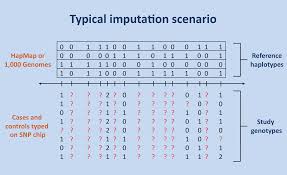
记忆方法
记忆单词“impute”的方法可以是构建一个故事或场景:
想象一个场景,你看到某人的桌上散落着一些物品,你没有看到他是如何放置的。你猜测他一定是故意这么做,因此你“impute”了这个行为是他的意图。在这里,“impute”意味着“归因于”或“归咎于”。
通过这个场景,你可以将“impute”与“imputation”(归因)这一概念联系起来,帮助记忆这个单词的含义。
想象一个场景,你看到某人的桌上散落着一些物品,你没有看到他是如何放置的。你猜测他一定是故意这么做,因此你“impute”了这个行为是他的意图。在这里,“impute”意味着“归因于”或“归咎于”。
通过这个场景,你可以将“impute”与“imputation”(归因)这一概念联系起来,帮助记忆这个单词的含义。
以上内容由AI生成, 仅供参考和借鉴
中文词源
impute 归因于,归咎于
im-,进入,使,-put,考虑,思考,计算,词源同compute,repute.即经过考虑的,引申词义归因于,归咎于。
英语词源
- impute (v.)
- early 15c., from Old French imputer (14c.) and directly from Latin imputare "to reckon, make account of, charge, ascribe," from assimilated form of in- "in, into" (see in- (2)) + putare "reckon, clear up, trim, prune, settle" (see pave). Related: Imputed; imputing.
权威例句
- 1. Why do you impute selfish motives to her?
- 你为什么说她的动机是自私的?
- 2. I impute his failure to laziness.
- 我把他的失败归咎于他的懒惰.
- 3. It is grossly unfair to impute blame to the United Nations.
- 把责任归咎于联合国极其不公。
- 4. The happy impute all their success to prudence or merit.
- 幸运者都把他们的成功归因于谨慎或功德.
- 5. I have no aspirations such as those you impute to me.
- 我可没有你归罪于我的这些欲望.